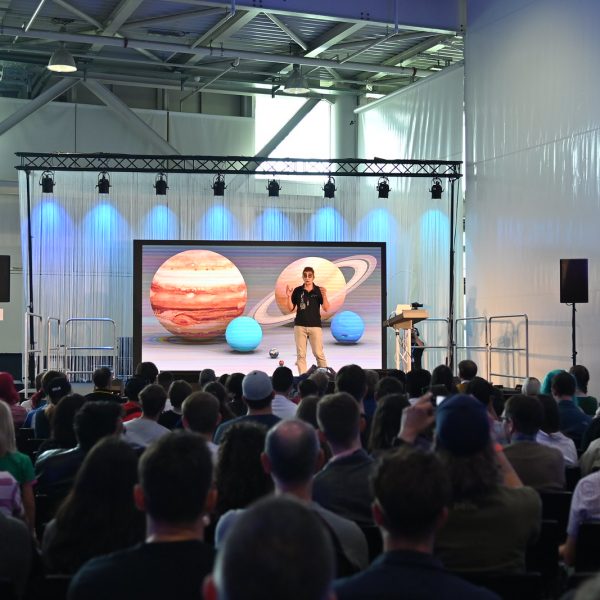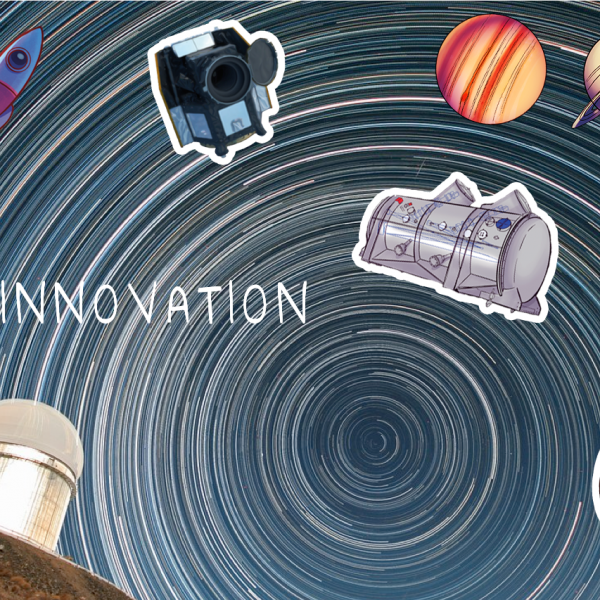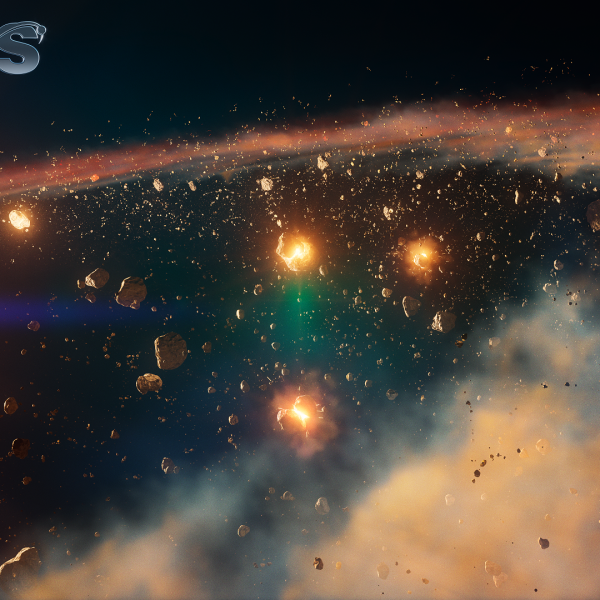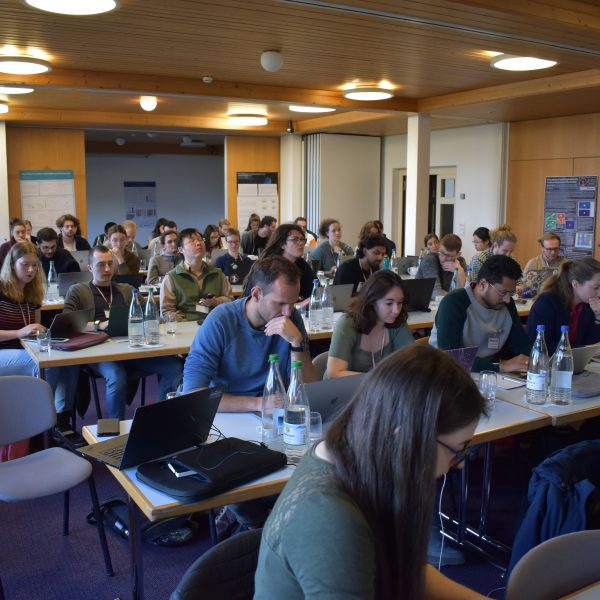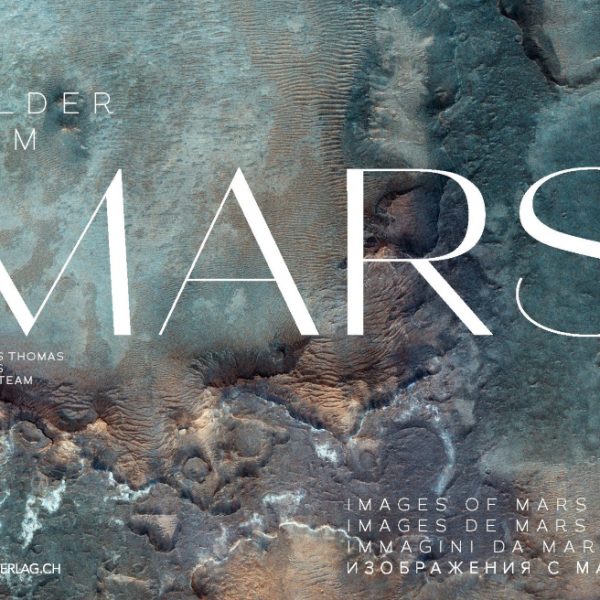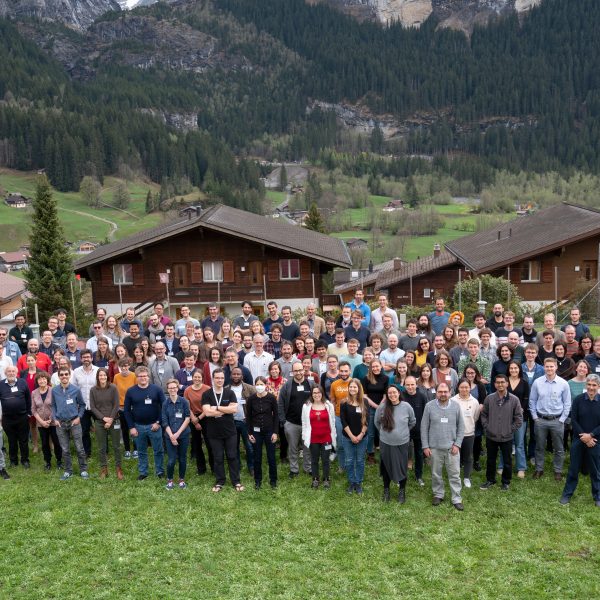News
“Science is even more fascinating than sci-fi”
This year’s Fantasy Basel concluded with a record: 62’000 visitors came to the mega event at the Messehalle Basel. Many also stopped by the exhibition of the Swiss Space Museum, in which the National Centre of Competence in Research (NCCR) PlanetS participated. There, they had the chance to marvel at a rich exhibition, try out […]
Continue ReadingAstronomical Innovation: let’s talk about start-ups!
Do you want to learn more about Entrepreneurship and possibilities to develop your Idea, with the help of your Research Institution?Come and join us, the 2nd of June at 14h (start of the event!), at the Geneva Observatory and meet Innovation experts from University of Geneva, Berne, Zurich and ETHZ. Info and registration here. […]
Continue ReadingThe chaotic early phase of the solar system
An international team of researchers led by the ETH Zurich and the National Centre of Competence in Research (NCCR) PlanetS have reconstructed the early history of several asteroids more precisely than ever before. Their results indicate that the early solar system was more chaotic than previously thought, featuring many catastrophic collisions. Before the Earth and […]
Continue ReadingJunior Research Assembly (JURA) 2022
The latest Junior Research Assembly (JURA) took place from the 4th to the 6th of April. Young researchers from the four universities that are part of NCCR PlanetS were invited to this 3-day event hosted at Hotel Meielisalp in Leissigen. There was a lot of motivation to participate from all universities, with an impressive number […]
Continue ReadingCaSSIS Book
The Colour and Stereo Surface Imaging System (CaSSIS) is a visual imaging system that was built by the University of Bern with support from several institutions in Europe and the US. The NCCR contributed to CaSSIS in the early phases and was very important in supporting its genesis. The camera was launched from Baikonur onboard […]
Continue ReadingInsiderS Editorial
Dear NCCR PlanetS members and associates, It has been a while since the last issue of the internal newsletter and much has happened in the mean time. This was evident at the first in-person General Assembly in two years, where many new faces could be seen. The 4-day event was a very rewarding event for […]
Continue ReadingGeneral Assembly 2022 in Grindelwald
The first in-person General Assembly in two years took place in Grindelwald. Nearly 150 members and associates, as well as the Advisory Board, gathered there to present and listen to each other’s research progress, catch up with or meet colleagues in-person for the first time and overall enjoyed a very rewarding time. After two years […]
Continue ReadingPrestigious Grants and Honors of PlanetS members
Despite the difficulties that the pandemic brought with it, our members have been incredibly successful in applying for prestigious grants and were honored with exceptional awards and prizes. Below follows an overview of some of the more recent examples. Paolo Sossi (ETHZ) and Brice Demory (UBE) won Starting and Consolidator Grants from the European […]
Continue ReadingProjektsekretär/in 70% (Mutterschaftsvertretung ab August 2022 bis Ende April 2023)
PlanetS ist ein Nationaler Forschungsschwerpunkt der Schweiz, der sich mit der Erforschung von Planeten befasst. Für das Projekt Office des NCCR Projektes suchen wir eine/n Projektsekretär/in 70% (Mutterschaftsvertretung ab August 2022 bis Ende April 2023). Projektsekretär/in 70% (Mutterschaftsvertretung ab August 2022 bis Ende April 2023) Hauptaufgaben: Erledigung sämtlicher administrativer Arbeiten bei Personalanstellungen Organisation von Video- […]
Continue ReadingPhD position in computational modelling of asteroid collisions
PhD position in computational modelling of asteroid collisions Asteroids, along with comets, are direct remnants from Solar System formation. They contain a relatively pristine record of the initial conditions present in the solar nebula, 4.6 billion years ago. These objects represent a unique opportunity to study the building blocks of planets and the role of […]
Continue Reading
